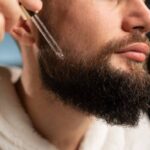Morning Wood Isn’t Just Morning Luck — It’s a Health Alarm 🔔
Waking up with an erection — commonly known as morning wood — isn’t just a random event. In fact, it can be a key indicator of your sexual and overall health. The morning wood health meaning goes far beyond what most men assume. These spontaneous erections during sleep, medically referred to as nocturnal penile tumescence (NPT), are natural, healthy, and crucial signs that everything is working well in your body.
Understanding the Science Behind Morning Wood
Morning erections typically occur during REM (Rapid Eye Movement) sleep, which is also the stage where dreams are most vivid. During REM cycles, your brain is highly active, and testosterone levels peak — two key ingredients that contribute to spontaneous erections. A man can experience between 3 to 5 erections per night, and the presence of these erections — especially upon waking — shows that blood flow and nerve function are intact.
Morning Wood and Hormonal Balance
Your testosterone levels are at their highest in the early morning hours. This hormonal surge is one of the reasons why erections are more frequent or firmer when you wake up. If you’re consistently waking up without morning wood, it might be a sign of low testosterone or hormonal imbalances. In that case, it’s worth checking your hormone levels or investigating deeper causes like stress or poor sleep quality.
Why Morning Erections Matter for Male Health
Contrary to popular belief, morning wood isn’t just about sexual arousal — it’s a health signal. Regular morning erections mean that your cardiovascular system, nervous system, and endocrine system are all functioning properly. If these spontaneous erections stop or become noticeably less frequent, it may point to issues such as:
- Circulatory problems that affect blood flow to the penis
- Neurological issues disrupting nerve signals
- Low testosterone or other hormonal irregularities
- Sleep disorders like apnea that reduce REM sleep
Morning Wood in Young vs. Older Men
In younger men, morning erections are often frequent and firm. As men age, these may become less regular, but that doesn’t necessarily mean there’s a problem. What’s important is to monitor significant or sudden changes. If you’re under 40 and not waking up with morning erections at least a few times a week, it may signal something is off.
Lifestyle Factors That Influence Morning Erections
Several habits and lifestyle choices can directly affect your ability to experience morning wood:
- Sleep quality: Poor or irregular sleep patterns reduce REM cycles.
- Alcohol and drug use: These can depress nervous system activity and hormone production.
- Obesity: Excess weight, especially belly fat, can lower testosterone and impair circulation.
- Chronic stress: Stress increases cortisol, which competes with testosterone.
How to Improve Morning Wood and Overall Male Health
If your morning erections have become less consistent or have disappeared entirely, here are strategies that can help:
- Improve your sleep hygiene — aim for 7–9 hours of quality sleep.
- Exercise regularly to enhance blood flow and testosterone production.
- Eat a diet rich in healthy fats, leafy greens, and zinc.
- Reduce stress through meditation, breathing exercises, or therapy.
- Cut back on alcohol, smoking, and recreational drugs.
Morning Erections vs. Erectile Dysfunction
One of the most important diagnostic clues for ED (erectile dysfunction) is the presence — or absence — of morning wood. If you can’t get or maintain an erection during sex but still experience morning erections, your ED might be psychological. However, if both are missing, it’s likely a physical or hormonal issue.
What If You Rarely Get Morning Wood?
Occasional absence of morning wood isn’t a cause for concern. But if it becomes a consistent pattern, you should take action. Start with lifestyle improvements, then consider blood tests for hormones, and consult a doctor if necessary. Morning wood acts like a built-in daily checkup on your sexual health.
Related Reads for Men Looking to Boost Sexual Health
To dive deeper into male health, check out our full post on how pelvic floor for male performance makes a difference in stamina and erectile strength.
Also, you might be interested in how cold showers and erections are surprisingly linked by science-backed vasoconstriction responses.
The Bottom Line: Pay Attention to Morning Wood
Morning erections are a powerful indicator of what’s happening inside your body. From hormones to heart health, they provide insight into systems that affect your sexual vitality and confidence. Instead of brushing it off as a random event, start seeing it as a daily report card for your manhood.
Morning Wood as a Marker of Cardiovascular Health
One of the most overlooked aspects of the morning wood health meaning is its connection to cardiovascular function. Erections rely heavily on adequate blood flow. The same arteries that supply your penis are similar in size to coronary arteries. This means issues with achieving or maintaining morning wood could be an early sign of circulatory problems — even before heart symptoms appear. Some studies suggest that erectile changes precede heart disease diagnoses by several years.
Psychological Factors Affecting Morning Erections
While morning wood is primarily physiological, mental health plays a major role too. Anxiety, depression, and chronic stress can interfere with hormonal production and REM sleep — the perfect recipe for a disappearing erection. Additionally, men suffering from performance anxiety often report fewer morning erections, not because their body can’t produce them, but because sleep disturbances get in the way.
Tracking Morning Wood: A Simple DIY Health Metric
Some doctors recommend keeping a “morning wood log” — literally a simple calendar where you track whether or not you woke up with an erection. Over time, this log can help identify patterns or early warning signs. For example, a sudden drop-off over the course of a month might point to lifestyle changes, medications, or even deeper issues that deserve investigation.
How Medications Can Impact Morning Wood
Certain medications — including antidepressants (SSRIs), blood pressure drugs, and sedatives — can reduce the frequency or intensity of morning erections. If you’ve recently started a new prescription and noticed changes in your morning wood pattern, bring it up with your doctor. There might be alternatives that don’t affect your sexual health.
Age-Related Changes: What’s Normal, What’s Not
It’s natural for frequency and intensity of morning erections to decline with age. Testosterone levels drop about 1% per year after age 30. But even men in their 60s and 70s should experience them occasionally. The key is to pay attention to changes — not just frequency. A sudden loss of morning wood, especially in men under 50, should be investigated.
Morning Erections and Semen Production
Though morning erections don’t always coincide with ejaculation, they can be linked to healthy semen production. Healthy nocturnal erections help oxygenate penile tissue and may indirectly support sperm motility. They’re also a sign that your prostate and seminal vesicles are getting adequate hormonal support — key factors in fertility and ejaculatory power.
When to See a Doctor About Morning Erections
If you’ve gone more than two weeks without a single morning erection — and you’re under 50 — it might be time to consult a urologist or endocrinologist. Blood tests can measure testosterone, free T, prolactin, LH, and more. You might also need a sleep study to assess REM sleep quality. Don’t ignore the signs — morning wood is a valuable biofeedback tool.
Morning Erections in Teenagers vs. Adults
Teenage boys often experience intense, frequent morning wood due to high surges in testosterone and active REM cycles. In adults, morning wood may be subtler but should still be present. For teens, these erections are a natural and healthy part of puberty. For adults, they remain a consistent check on hormonal and vascular health.
Related Articles That Dive Deeper Into Male Sexual Function
Want to improve the quality of your erections throughout the day? Learn how the foreskin and sexual sensitivity influence arousal and pleasure.
You can also explore how porn impact on erections might be desensitizing your brain and contributing to morning wood problems.
Interesting Facts About Morning Wood You Probably Didn’t Know
- It happens in the womb: Male fetuses can experience erections in the womb as early as the third trimester. This proves it’s a biological function, not just a response to stimulation.
- Some men ejaculate during REM: Known as “wet dreams” or nocturnal emissions, these are common in teenagers but can also happen in adult men. They often coincide with morning erections.
- Sleeping position matters: Men who sleep on their stomach may experience fewer morning erections due to pressure on the pelvis. Back or side sleeping is often better for nocturnal tumescence.
- Nocturnal erections prevent tissue damage: Erections during sleep deliver oxygen-rich blood to the penile tissue, preventing fibrosis and maintaining elasticity — crucial for long-term sexual function.
📊 Comparison: Healthy vs. Unhealthy Morning Erections
| Feature | Healthy Man ✅ | Warning Sign ⚠️ |
|---|---|---|
| Frequency | 4–7 times/week | 0–2 times/week |
| Duration | 5–15 minutes | < 2 minutes or none |
| Firmness | Hard, full erection | Soft or semi-hard |
| Morning Energy | Wakes up with drive | Fatigue, brain fog |
| Testosterone Impact | High T levels | Low or declining T |
Conclusion: Embrace Morning Wood as Your Masculine Health Gauge
Instead of seeing morning erections as something to ignore — or worse, be embarrassed by — view them as an internal signal. They’re free, daily feedback from your body. By understanding the true morning wood health meaning, you gain insight not only into your sexual function, but also into your cardiovascular system, hormonal health, and even mental well-being.
Want to take full control of your erections, size, and stamina naturally? Access the complete system here and unlock your peak male performance.
❓ FAQs About Morning Erections
1. Is it normal to lose morning wood as I age?
Yes — but only slightly. While frequency may reduce a bit, sudden or complete loss often indicates declining testosterone or poor circulation. It’s worth tracking and addressing with lifestyle upgrades.
2. Can I bring back my morning erections naturally?
Absolutely. Focus on high-quality sleep, reduce porn use, eat testosterone-boosting foods, and train your pelvic floor. Cold showers and quitting late-night scrolling also help. See studies like this one on sleep and testosterone connection.
 What Morning Erections Reveal About Your Health – masculine growth symbolism – via supremepenis.com
What Morning Erections Reveal About Your Health – masculine growth symbolism – via supremepenis.com








